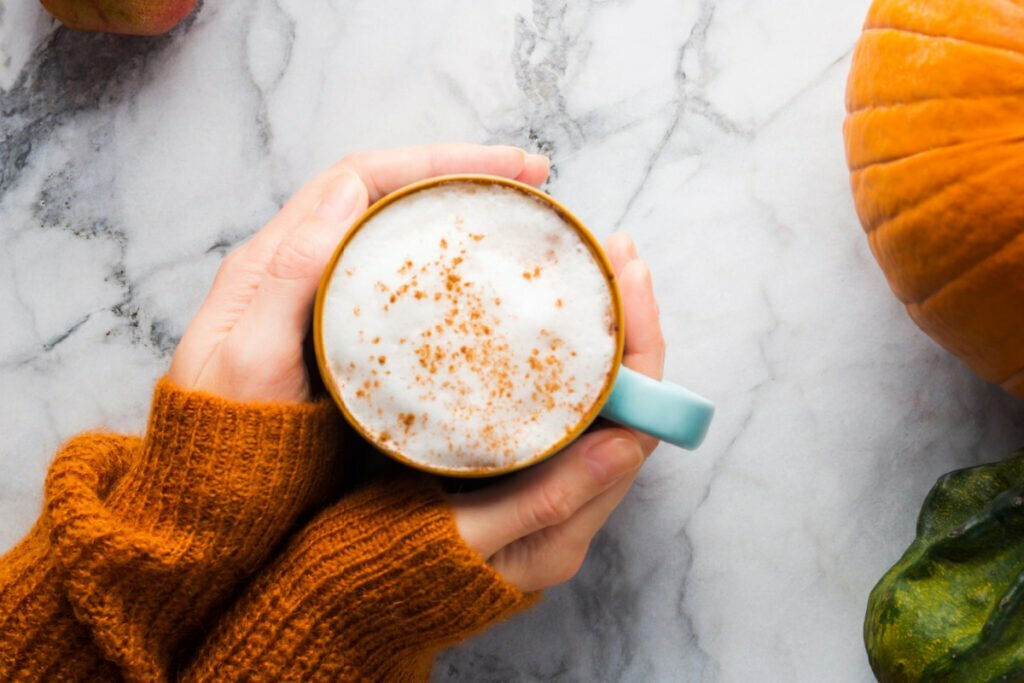Is Pumpkin Spice Good For You? Everything You Need to Know About This Festive Spice.
 Nothing says fall like pumpkin spice. Not only does this festive flavor bring warm memories of time spent with friends and family, but it also provides a number of health benefits, especially when it’s absent of sugary syrups and hydrogenated oils. Read on to learn all about this delightful spice and tips for maximizing its nutritional value.
Nothing says fall like pumpkin spice. Not only does this festive flavor bring warm memories of time spent with friends and family, but it also provides a number of health benefits, especially when it’s absent of sugary syrups and hydrogenated oils. Read on to learn all about this delightful spice and tips for maximizing its nutritional value.
What is pumpkin spice?
Pumpkin spice is a combination of ground cinnamon, ginger, nutmeg, and/or cloves. Each of these spices has its own health benefits and, when combined, can provide a serious nutritional boost. Just make sure you avoid the sugary syrups and baked goods often associated with this seasonal spice to get the maximum nutritional value.
Make sure you avoid the sugary syrups and baked goods associated with pumpkin spice to get the greatest health benefit.
Cinnamon
Cinnamon is one of the most nutrient-rich spices you can buy. Its anti-inflammatory properties can help lower blood sugar, triglyceride levels, and cholesterol, and increase “good” HDL cholesterol in people with type 2 diabetes.
Cinnamon also contains antioxidants, which help promote brain health by protecting brain cells and improving memory & cognition. As such, researchers have suggested that cinnamon can prevent and even reverse a variety of degenerative brain diseases, including Alzheimer’s and Parkinson’s.
Finally, cinnamon has anti-microbial and anti-bacterial properties which can help you fight infections and stay healthy through the holidays. In fact, studies have shown that cinnamon oil is effective at killing streptococcus (strep), MRSA, staphylococcus (staph infection), E. coli, and several other antibiotic-resistant strains of bacteria.
Nutmeg
Nutmeg is another spice high in antioxidants, which help to prevent cellular damage and certain cancers. Nutmeg can also soothe indigestion and improve oral health.
Similar to cinnamon, nutmeg can also protect brain cells and has even been shown to help victims of stroke and Alzheimer’s disease recover brain tissue.
Ginger
Ginger has been used medicinally by cultures around the world for centuries. Not only can it reduce nausea, pain, and inflammation but it can also alleviate menstrual cramps. Now that’s a spice which our female staff members can get behind!
Cloves
Cloves are an elusive spice to many of us; just what are those strange-looking black flowers and how do you use them? Because they contain analgesic, antibacterial, and anti-inflammatory properties, cloves (in the form of clove oil) are often used by dentists to promote oral health and reduce pain.
Cloves are also high in manganese, a mineral required for normal brain and nervous system functioning. Just one teaspoon of ground cloves contains 30% of your recommended daily intake! Manganese can help promote healthy bone development when combined with calcium, zinc, and copper, an especially important consideration for postmenopausal women and elderly adults.
Wait…where’s the pumpkin?
As you likely know, pumpkin spice doesn’t actually contain pumpkin. Rather, the name was coined in the 1950s by spice manufacturers like McCormick who began blending these individual spices together to save consumers time and effort when baking with pumpkin. But while there’s no pumpkin in pumpkin spice, these gourds are much more than just a festive fall decoration; they are a nutritional powerhouse, providing fiber, antioxidants, and other essential nutrients. Here are 3 health benefits of pumpkin:
3 health benefits of pumpkin
- Pumpkins are high in fiber, a nutrient that helps us stay fuller longer. Fiber also reduces “bad” LDL cholesterol and is associated with a reduced risk for heart disease, stroke, hypertension, obesity, type 2 diabetes, and certain cancers. A single cup of canned pumpkin contains a whopping 7 grams of fiber—more than you get from two slices of whole-grain bread!
- Pumpkins are a good source of Beta Carotene, a type of carotenoid that can help protect skin from the sun’s UV rays, helping us look younger longer. As an added bonus, our bodies convert roughly 50% of carotenoids into vitamin A, a nutrient essential for maintaining good vision and healthy cell division.
If vitamin A doesn’t sound familiar, its by-product, retinol, will. Vitamin A is converted into retinol by the liver, an essential ingredient in skincare products that can help prevent acne, fine lines, and age spots. - Pumpkins are rich in antioxidants, which boost immune function and protect healthy cells against disease-causing free radicals.
Pumpkins are a nutritional powerhouse, providing fiber, antioxidants, and other essential nutrients.
Avoid unhealthy foods flavored with pumpkin spice
We know it can be hard to avoid syrupy pumpkin spice lattes and sweetened pumpkin pastries, but these foods contain very few nutrients and are loaded with fat and sugar, negating any health benefits associated with pumpkin or pumpkin spice. So, instead of looking to Starbucks and your holiday pumpkin pie for nutritional value, make your own pumpkin-flavored foods by adding canned pumpkin and spices. These products will provide the fiber, vitamins, minerals, and antioxidants your body craves this fall.
To get you started on your culinary journey, here are a few healthy pumpkin recipe ideas:
- Pumpkin pie overnight oats
- DIY pumpkin spice latte
- Pumpkin pie greek yogurt parfaits
- Roasted pumpkin seeds
Complement your wellness routine with Atlanta’s plastic surgery experts
Diet and exercise are a critical part of a healthy lifestyle, but sometimes you need a little boost to reach your aesthetic goals. Our board certified Atlanta plastic surgeons can help you look great just in time for the holidays and complement your existing wellness routine with a variety of cosmetic treatments, like CoolSculpting, liposuction, microneedling, and more. Find a procedure perfect for you by scheduling a free consultation with us. Happy fall!